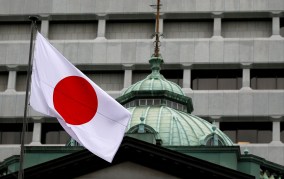
Over the years, I’ve done a lot thinking and writing about challenges faced by Japanese monetary policymakers in their attempts to combat deflation. In some of my earlier pieces I argued that, if the Bank of Japan (BOJ) showed more resolve, it could readily overcome these problems. But, in recent years, the Bank has shown great resolve, and while the results have generally been positive, deflation has not been decisively vanquished. In particular, the BOJ has had difficulty meeting its goal of getting inflation sustainably to 2 percent per year.
In a May 24 lecture at the Bank of Japan, I reviewed my past advice to see how it has stood the test of time, and I offered some thoughts on what options the BOJ might consider if its current policy framework is insufficient to achieves its inflation objectives.
Some of my key conclusions are as follows:
- The BOJ shouldn’t stop its determined pursuit of its inflation target even though the economy is currently performing well by some measures. Among other reasons, getting inflation and interest rates higher will promote economic stability by increasing the BOJ’s ability to respond to future recessions.
- Monetary policy in Japan became much more aggressive in 2013, following the election of Shinzo Abe and his appointment of Haruhiko Kuroda as governor of the BOJ. Kuroda’s program of “qualitative and quantitative easing” has had important benefits, including higher inflation and nominal GDP growth and tighter labor markets. Recent changes to the BOJ’s framework will make it more sustainable. However, some features of the Japanese economy and the legacies of past policies are interacting to prevent faster progress towards the BOJ’s inflation objective. Whether the objective will be met over the next few years remains to be seen and depends in part on factors outside the central bank’s control.
- What tools remain if current policies are not enough? The scope for significant further easing by Japanese monetary authorities on their own seems limited, as interest rates are near zero for government bonds even at long maturities and raising inflation expectations—a way to lower real interest rates—has proved difficult. If more stimulus is needed, the most promising direction would be through fiscal and monetary cooperation, in which the BOJ agrees to temporarily raise its inflation target as needed to offset the effects of new fiscal spending or tax cuts on the debt-to-GDP ratio. Such coordination could help generate the extra aggregate demand the BOJ is seeking, without worsening Japan’s fiscal situation or compromising central bank independence.
Read the full remarks here.
Comments are now closed for this post.


